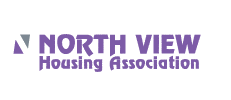Objectives and Key Performance Targets
Objectives and Key Performance Targets
At the start of each financial year we set our Objectives and Key Performance Targets for that year. We then monitor our progress monthly, and include an update report in our quarterly newsletters.
Scottish Housing Regulator – Annual Return on the Charter, and Landlord Report
We submit an Annual Return on the Scottish Social Housing Charter by end of May each year; this is known as our ARC submission. The Regulator takes that information and analysis it along with the Returns from all the housing associations, housing co-operative, and local authorities across the country. By the end of August, the Regulator issues each housing association and co-operative with their ‘Landlord Report’; in that they confirm the Scottish average for many ARC items and report on how each association and co-operative did in the previous financial year.
Scottish Housing Regulator – Engagement Plan
Throughout the year we provide the Regulator with a lot of information. They use that information to assess our performance and decide the level of contact that they need to have with us. This can vary from year to year depending upon what the Association is up to i.e. if we were about to start a £15m development programme, the Regulator would want a closer relationship with us to satisfy themselves that we had things under control. Having taken on board all the information that we send them, the Regulator then issues each (registered) social landlord with an Engagement Plan, in which they set out how they will engage with that landlord in the year ahead. Our most recent Engagement Plan can be found by clicking here
Annual Performance Report
By the end of October each year, we publish our ‘Annual Performance Management Report’ for the financial year that ended on the previous 31st March. This is sent to all our tenants. The Regulator’s Landlord Report, and Engagement Plan are included in it, but we also report on how well we are complying with the conditions of the Scottish Social Housing Charter, we benchmark our performance against the Scottish average and our peer group average in key performance areas as well as comparing our performance against how we did in the previous year, and we report on how performed against our the annual objectives and key performance targets that we set at the beginning of that financial year. Our most recent Report can be found by clicking here
Assurance Statement
The Scottish Housing Regulator requires every Registered Social Landlords (i.e. housing associations and housing co-operatives) to submit to them an ‘Annual Assurance Statement’ – which is our Management Committee’s assessment of how well we are complying with all the rules and regulations that we are required to comply with. Our most recent Statement can be found by clicking here
Residents’ Survey
Every two years, we employ an independent market research firm to carry out a large scale survey of our residents. We use the survey results primarily to gauge levels of resident satisfaction with the services that we provide, but we also use it to find out about other things, for example how happy tenants are about us spending money on community activities like funding a local weekly play club for primary school aged children, how many of our tenants are struggling to pay their fuel bills etc. The feedback we get influences how we go about providing services to our residents – it could result in us making changes to the services that we currently apply, or it maybe that we introduce a new service that is responsive to that feedback. Our Survey Reports can be found here
Complaints
Complaints can be a barometer for how well we are doing. We assess complaints to see what we can learn from them, and then amend things accordingly to improve service delivery. Complaints about our service (which does not include anti-social behaviour complaints) fall into two categories – a Frontline complaint (also referred to as a ‘Stage 1’ complaint), and an Investigatory complaint (known as a Stage 2 complaint).
Frontline complaints are the more common, and they are about things that can be attended to quickly – like a complaint about someone not turning up when they said they would – while Investigatory complaints are generally about more serious issues, although they do include Stage 1 complaints that have been stepped up to Stage 2 because they haven’t been resolved.
Our target is to resolve Stage 1 complaints within five working days of receiving the complaint, and Stage 2 complaints within 20 working days of receipt.
The monthly Performance Report that our Management Committee get includes a report about complaints; we also report on them in our quarterly newsletter.

